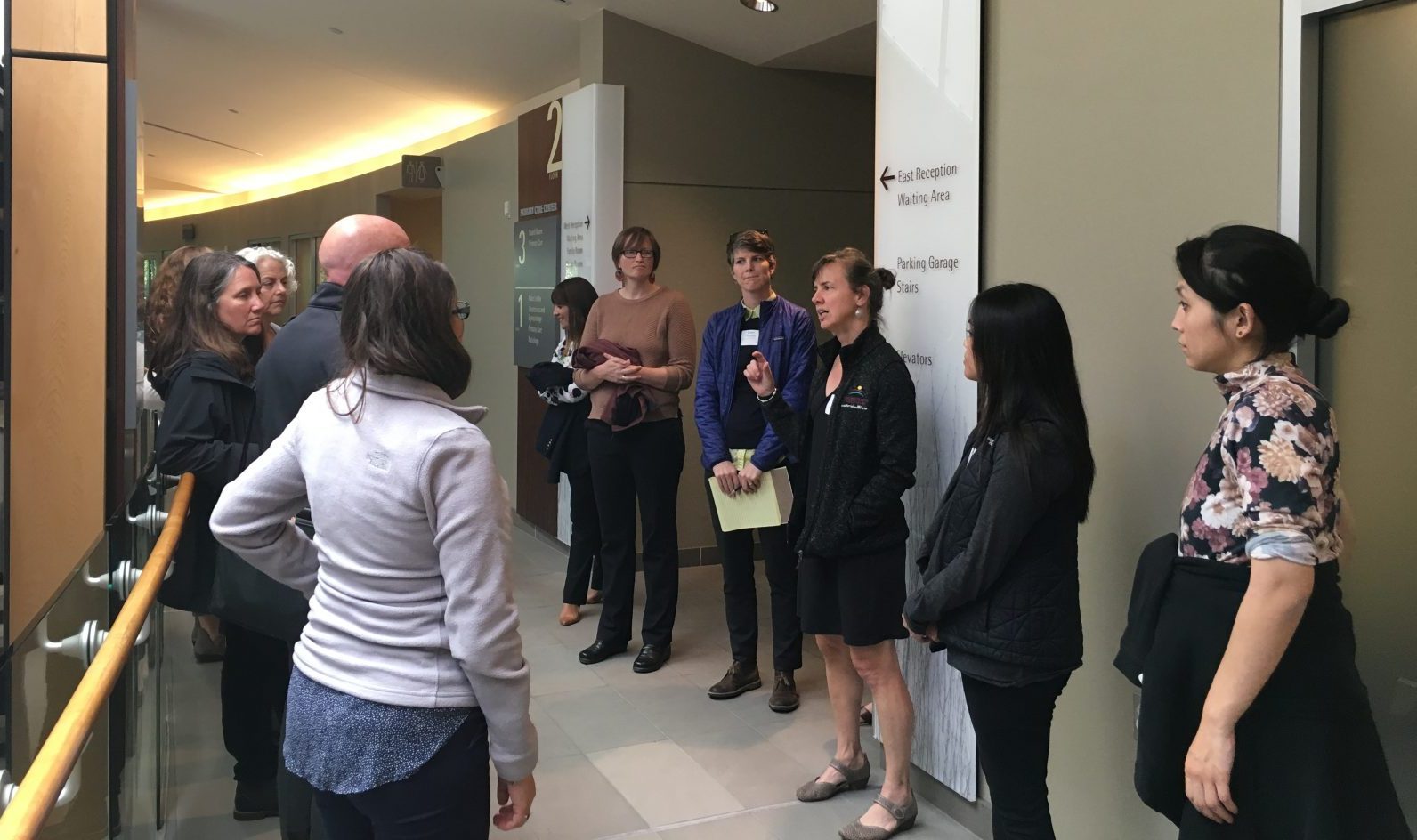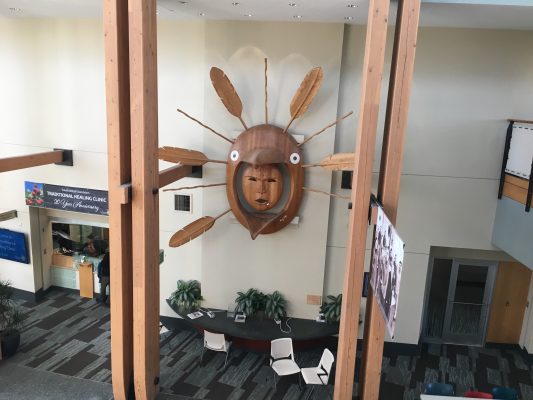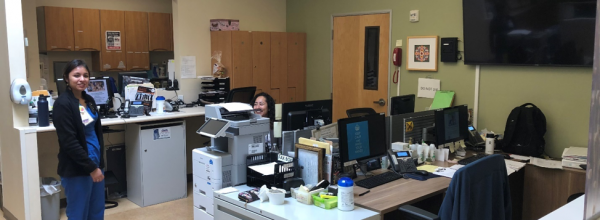I recently had the opportunity to visit Southcentral Foundation in Anchorage, Alaska, as part of our Population Health Learning Network. I was initially compelled to go on this site visit because I had little knowledge of the health care issues confronting Native people. In addition, SCF receives so much buzz as two-time winners of the Malcolm Baldrige National Quality Award. I wanted to learn what makes them so great and what could we bring back to health centers in California.

After spending a full day with Southcentral Foundation (SCF), I am amazed by the intentionality and culture of the organization. SCF works to provide quality service through their commitment to community empowerment, relationship-building, and learning.
Here is what those components look like at SCF:
Customer-owners know best.
Demographically, SCF serves a large population of Alaskan Native people and has the responsibility of reporting to tribal representatives. Currently, Alaska is the only state where native tribes assume responsibility of their health care. Recognized tribes come together to negotiate funds with one another before approaching the state for funding, and as a result, many tribes are involved in the process, avoiding the issue of inequitable funding. This collaborative process serves as a learning opportunity for tribes involved, where best practices, challenges, and experiences are often shared.
A key difference between SCF and other health care organizations is that SCF refers to their patients as “customer-owners.” SCF acknowledges the history of injustices against Alaskan Native people and believes in empowering their customer-owners to take control of their health care. Using the term “customer-owner” shifts the power dynamics and engages customer-owners in the decisions around their health and health care.
On various SCF pamphlets, you will find that there are many acronyms that represent their strategic goals and operational principles. For example, they have also broken down SCF as:
Shared responsibility
Commitment to Quality
Family wellness
SCF regularly runs organization-wide surveys to gain input from customer-owners on the quality of service and changes they’d like to see made. This information is then gathered and institutionalized into the way they work and make decisions. Plan-Do-Study-Act (PDSA) ideas are first vetted against operational principles, before being greenlighted. Even SCF employees are reviewed based on their performance and contribution to the organization’s strategic goals. At all levels of the organization, the input from customer-owners is highlighted and used as a structure for decision-making.
Shift from patient-centered care to relationship-centered care.
SCF is not only invested in its customer-owners, it is committed to developing and nurturing relationships between all stakeholders. Every new customer-owner is given a booklet of photos and biographies of various care teams, before they are asked to pick which care team they’d like to see. From the start, customer-owners are empowered to be in relationship with SCF employees that they feel comfortable around. SCF even allows direct communication between care teams and customer-owners via texting.
For SCF staff, relationship building begins during their welcome orientation, where employees across different departments are grouped together and encouraged to share personal stories and lived experiences. Creating space to connect over personal stories has allowed employees to connect on another level of compassion and empathy. This practice of empathy comes through in specific trainings for how employees can approach their colleagues or customer-owners when they are falling through on tasks or missing appointments.
Invest in the local community.

Workforce development functions separately from the human resources department, allowing SCF to devote more attention and support for cultivating prospective and current employees. The two-time Malcolm Baldrige winner has learned through experience and community feedback that retaining and training up employees is the key to success. SCF’s Administrative Support Training program was inspired by that model and overhires community members older than 18 years old, regardless of educational degree or experience. Individuals who meet the age requirement and pass the general screening process participate in an eight-week paid training program that teaches them the basics of SCF’s organizational structure and customer service, in addition to general life- and career-planning skills. Upon completion of the training, individuals meet with various department heads to determine the ideal placement for them in the organization. Individuals that successfully complete the entire training process are guaranteed a job by the end.
SCF’s workforce development is not only a solution for addressing staff turnover; it is an intentional investment into the local community. More than 50 percent of SCF employees are Alaska Native people and the health center engages community members as young as age 14 through their other youth workforce development program, RAISE. SCF is creating opportunities for local economic growth, as well familiarizing locals with their health care system.
Another benefit of hiring locals are the direct lines of feedback. Karen McIntire, SCF’s head of human resources, shares that employees are community members who often get comments from their families, friends, and neighbors about what is and isn’t working well at SCF. Employees are then encouraged to share back that input, and SCF takes it into consideration when making regular improvements to the health care system.
Carve out time to learn.
At the first PHLN convening, Karen McIntire, SCF’s director of human resources, and Mike Hirst, SCF’s director of data services, served as our workshop facilitators on the topic of “learning organizations.” At SCF, I witnessed this firsthand as we heard from a panel of care team members describing how they stay engaged in new clinical information and organizational practices. Their organization hosts two-hour clinical competency meetings every quarter. During this time, clinic appointments are not booked and care team members meet by roles to discuss any updates or changes in their practice.
During our tour of the clinic, we learned that SCF’s leadership team does not entirely have health care backgrounds. In fact, SCF hires management staff from other industries like restaurant, service, etc. They recognize that there is much to learn from how other industries work, and often, these practices can be carried over to help improve efficiency and flow of health care delivery. SCF’s perspective and engagement with analogous examples are worth practicing at other health care organizations.

Find this useful or interesting? We’re constantly sharing stuff like this. Sign up to receive our newsletter to stay in the loop.




